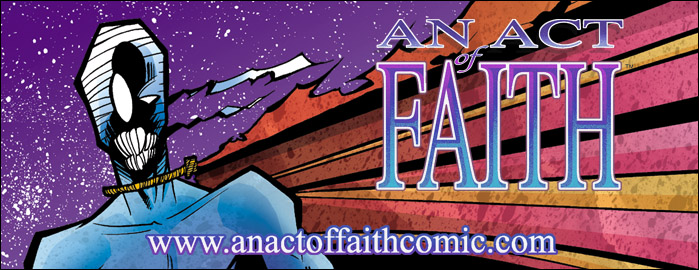"Comics and Work-Made-for-Hire: Creator’s Rights"

According to the Library of Congress, work-made-for-hire is, in part, described thusly: "Although the general rule is that the person who creates a work is the author of that work, there is an exception to that principle: the copyright law defines a category of works called ‘works made for hire.’ If a work is ‘made for hire,’ the employer, and not the employee, is considered the author. The employer may be a firm, an organization, or an individual."
If done respectfully, I don’t have a real problem with work-made-for-hire in the comic book industry. I don’t have a problem with someone being compensated for employing his or her skills at the request of a publisher. I do have a problem when work-for-hire is used to promote unethical treatment.
I don’t have to tell you about how comic book creators have been abused. I don’t have to tell you about how certain editors or publishers stole or swindled ideas or creations from artists and writers. I don’t have to tell you about the fight for the return of artwork to those who created that artwork. I don’t have to tell you about the right for creators to receive royalties.
However, if you think that these are issues of the past, then I do have to tell you that you’re dead wrong. There are some publishers today that do not return artwork back to all of its creators. There are some that do not offer royalties. There are some that don’t even guarantee creator credits.
Although things have gotten better for comic book creators and freelancers, not all comic book publishers abide by certain ethical practices. We work in an industry that has been appropriately coined by Steve Bissette (for THE COMICS JOURNAL) as "a moral ghetto."
In the world of commercial art, the Graphic Artists Guild has "the Code of Fair Practice." This is a list of ethics promoted by the Graphic Artists Guild.
In comics, we have the Creator’s Bill of Rights. Back in 1988, a group of comic book creators got together to see what they could do about protecting the rights of comic book creators. From these series of summits, specifically at Northampton, Massachusetts, the Creator’s Bill of Rights was produced. The participants of the Bill’s creation included Scott McCloud, Dave Sim, Gerhard, Steve Bissette, Rick Veitch, Larry Marder, Kevin Eastman, Peter Laird, Mark Martin, Steve Murphy, Michael Zulli, Eric Talbot, Ken Mitchroney, Michael Dooney, Steve Lavigne, Craig Farley, Jim Lawson and Ryan Brown. (I’m sorry if I left anyone out.)
The Creator’s Bill of Rights states various rights including "the right to full ownership of what we fully create," "the right to prompt and complete return of our artwork in its original condition," and "the right of approval over the methods by which our creative property is distributed." Some of these rights seem pretty basic, but they are not all honored today.
Sadly, the Creator’s Bill of Rights is largely ignored by many creators and publishers. It’s easy to ignore poor conduct when there is a lack of, or ignorance of, an established list of ethics. It’s even obvious why a comic book publisher would want to ignore the Creator’s Bill of Rights. But, why would a comics creator do so?
My intent here is to make cartoonists, especially young ones, aware of some of the pitfalls in the comics industry. At the very least, the Creator’s Bill of Rights should be looked upon as such. I’m hoping for outspoken discussion and awareness on creator’s rights issues while instilling change in our industry.
Tomorrow, I’ll start posting responses from various comic book creators from the likes of Erik Larsen, Fernando Ruiz, and Steve Bissette.
For more info regarding comic book Creator’s Rights stop by Ya Can’t Erase Ink and the Creator’s Rights forum.
Labels: Comics, Creator's Rights, Dave Sim, Scott McCloud



1 Comments:
Hi Al!
Thanks for posting this. I run a comics reading group in london and we're meeting next on the 13th of September to discuss Comics Creator's Rights and Ethics. If that's okay with you I'll let people know of your blog so we can fuel up our debate!
Thanks!
pedro
Post a Comment
Subscribe to Post Comments [Atom]
<< Home